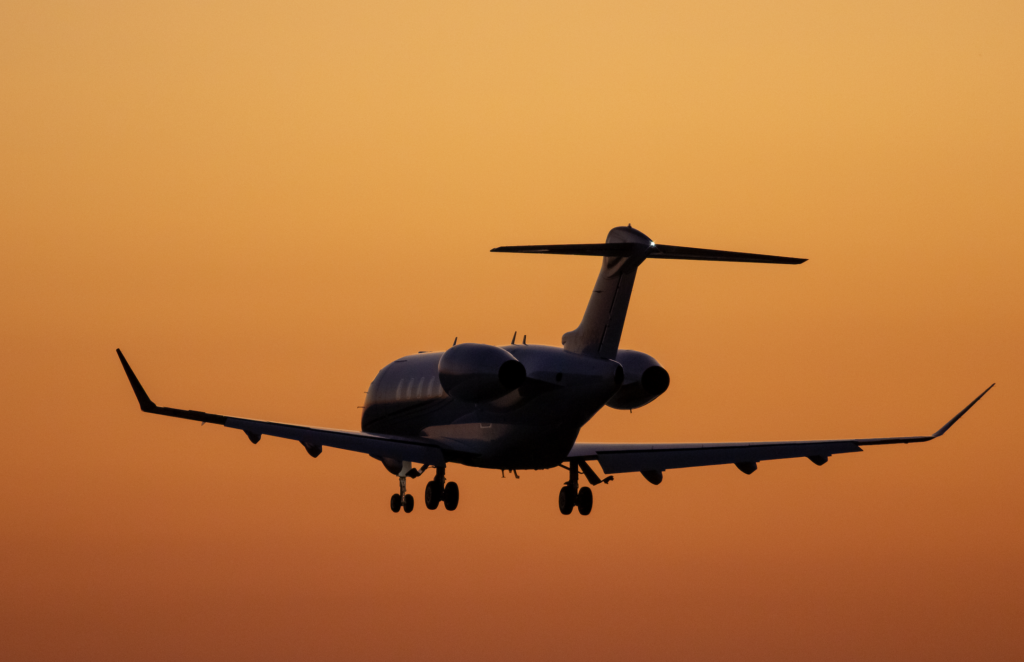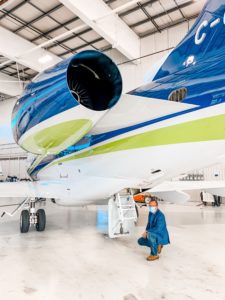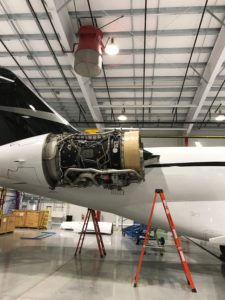Estimated reading time 10 minutes, 14 seconds.
As commercial airlines cut routes and reduce schedules due to COVID-19, the prospect of owning your own aircraft seems more enticing than ever before.
Private airplanes offer a number of advantages during a pandemic, including significantly reduced exposure and around-the-clock availability. According to Kathy Wrobel, president of Calgary-based Prairie Aircraft Sales, this is an attractive proposition for many potential buyers. She said that despite the pandemic, her business hasn’t slowed down in 2020.

“Overall, my year has been super busy,” she told Skies. “There are more people buying planes, and a lot are staying in Canada. But I’m still sending them across the border regularly.”
Whenever an aircraft changes hands, the buyer will usually request a pre-purchase inspection (PPI). Designed to flag any potentially expensive defects or looming repairs, this in-depth procedure is generally conducted by a maintenance shop of the buyer’s choice, and in the presence of either the buyer themselves or their authorized representative.
In the face of global travel restrictions, it has become increasingly complicated to get a PPI done for international deals. More and more foreign buyers are relying exclusively on the opinions of third-party maintenance providers, who will perform a thorough inspection on their behalf.
“A lot of buyers were used to coming up and looking at the aircraft,” explained Wrobel, adding that border closures now make that very difficult. “I’m finding this to be more of a problem with the bigger aircraft, but for the smaller planes we’re still managing to get our pre-buys done.”
Wrobel has sold six aircraft to U.S. buyers so far this year, along with three to Europe, and one to Korea. She said supplementary tools like pictures, video, and FaceTime have been helpful in cementing those deals.
“I’ve got a client doing that right now with a single-engine turboprop that’s down in the States. With the technology we have nowadays, it’s almost like being there.”
However, digital imagery can never replace a thorough maintenance inspection, and that’s where independent maintenance shops can act as the eyes of the buyer.
“For bigger aircraft, foreign buyers might use a third-party shop here in Canada to do the inspection,” noted Wrobel. “Then, nothing has to leave the country. For example, I sold a [Cessna] Caravan and all the inspections were done here before it was delivered to the States. But it was purchased and accepted while it was still here.”
Anna Pangrazzi, president of Apex Aircraft Sales in Markham, Ont., told Skies that her buyers have been fine with third-party inspections, too.
“We haven’t had that big of an issue, because the majority of our sales are in Ontario,” she said. “We have delivered six aircraft to the U.S. since COVID, and the pre-purchase inspections have been done in Canada.”
Following the outbreak of the pandemic, Pangrazzi said business essentially came to a halt, but “in June, we had a big bump, like pent-up demand. We are now on target to do the same amount of business as last year.”

In some cases, her deals have been delayed thanks to travel restrictions, but the demand for quality used aircraft shows a renewed interest in general aviation. It’s a demand that crosses borders, as buyers search the globe for the right machine.
Detailed Inspections
Shops like Calgary-based Cavalier Aviation are used to performing inspections on behalf of foreign buyers. The company caters mostly to single-engine piston aircraft for the general aviation market. Mark Bushrod, Cavalier’s director of maintenance, said there is an extra level of due diligence that must be performed for a PPI during the pandemic.
“American buyers are unable to come up and visit these aircraft,” he said. “So, we’re doing a more detailed physical inspection and identifying non-airworthiness defects for informational purposes. The things we’d typically not write down are being relayed to buyers now, and we always send pictures.”
Some of the PPIs Bushrod has administered have been performed on aircraft that have been 50 years old or more. While these machines may be completely airworthy, chances are they haven’t made it this far without a collection of dents and scratches. That can make a PPI a very tricky business.
“You’re trying to assess the airplane for the buyer, to let them know and understand what they are buying, especially when the aircraft is being exported,” he commented. “We’re now taking this hypersensitive look at the airplane and more detail is almost always negative — there is a scratch here or a nick there. Sometimes, the seller feels we’re being too critical and beating up their airplane.”
By the same token, said Bushrod, anything that is outside the limitations published in aircraft manuals should be noted on a PPI report. If a problem is not documented and is subsequently pointed out by foreign examiners when the aircraft is delivered, “we will have a real issue and it will need to be fixed.”
When performing a PPI, familiarization with the aircraft type is critical. At Skyservice Business Aviation, the maintenance team has performed six pre-buy inspections since COVID began. The company is an approved service centre for Bombardier, Dassault, Gulfstream and Honda business jets and turboprop aircraft, although its maintenance team has worked on most aircraft types.
Glenn Williams, director of business development and sales, said Skyservice offers a full range of inspection capabilities, from simple visual aircraft and records examinations to “mechanical and forensic deep dives” that could take two weeks to complete.
Business jets are big investments, and prospective buyers like to have their own representative onsite for the PPI. Williams said in that case, Skyservice has implemented specific procedures to protect customers and staff from potential exposure to the virus.

“We have been letting customer representatives come in, but their access to our facilities is restricted to certain times of the day, when they come and meet only with their Skyservice project manager to get an update,” he explained.
While some cross-border maintenance activities have slowed, Williams said the department has been kept busy as a dealer and installer of Aviation Clean Air (ACA) systems. ACA is an environmental purification solution that uses patented ionization technology to sterilize aircraft, rendering viruses like COVID-19 harmless.
“Having that technology also gives people peace of mind when they come up for an inspection,” said Williams, adding that, in general, technology assists with effective PPI reporting.
“We use project software where we can take a picture of a defect and give the costing to repair it. We note airworthiness defects and non-airworthiness defects, as well as opportunities for improvements. We gauge the buyer’s expectations and use our expertise to concentrate on the most important items, so deals can close quicker.”
While PPIs are more complicated during the pandemic, it’s deliveries that are causing Wrobel the most concern. She said in late November that flight crew were still considered essential workers and, so far, were being allowed to cross the border.
“The biggest challenge right now is going back and forth,” she said. “I think that is tightening. Ferry pilots going across the border say it’s harder and harder to get through. They are getting stricter about delivery pilots coming back on the airlines and doing quarantine.”
Even though there are not supposed to be any restrictions when it comes to commerce, added Wrobel, it is still getting more difficult to conduct business across the border. Where truck drivers are exempt, pilots are encountering more restrictions.
At Skyservice, border restrictions and the pandemic have noticeably impacted the company’s mix of maintenance business.
“Although our cross-border AOG business has declined, we have been able to grow our domestic business, since aircraft are no longer crossing the border as regularly for service work,” said Williams.
“We believe this will have a more lasting impact on our business going forward. A broader range of clients have been exposed to the depth of certifications and capabilities in our business.”
Any measures to safely improve the flow of people and commerce across the border are being welcomed by the aviation industry, which has been hard-hit by COVID-19.
For example, Skyservice’s Calgary location is now participating in an international border testing pilot program at YYC. International passengers must submit to COVID-19 testing upon arrival, which may qualify them for a reduced quarantine period as long as they test negative.








